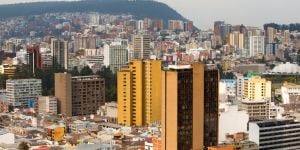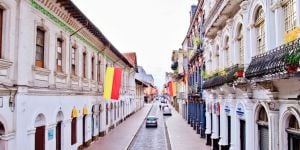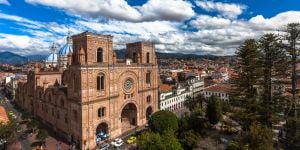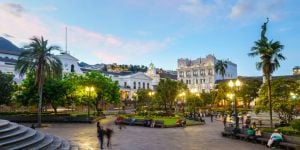I've noticed that there's a lot of information on the Internet about how Americans access funds from their accounts in the States. Let's be honest, they have it pretty good, as they don't have to worry about exchange and with the free market in the USA, bank fees are seldom are large concern. That's all well and good, but what about us Canadians? Our banking system is much more regulated and when it comes to service charges, it's challenging to avoid them. I don't have a fool proof answer, but coming from the banking industry I can share some of my thoughts and experiences on this whole issue.
If you have a US$ savings or chequing account, you either know already (or are about to find out) that those funds are only accessible in branch or via cheque. You can not draw out US$ funds from your US$ account outside of Canada. A horrible irony, I know. So what to do?
My first step was to apply for a US$ Visa from a Canadian Financial Institution. I chose my card by researching annual cost, transaction fees and the ability to over pay the balance - more on that in a moment. There are other things to consider, such as whether you can put payments on your card through online banking. Most financial institutions (or FI's) will only allow payments to a US$ credit card from an US$ account at the same financial institution.
I chose my credit card for two reasons: at the time the FI had the lowest international fee for cash advances and they allowed you to hold a credit balance on the credit card. Why is this important you might ask? Very simply because you don't get charged interest on the cash advance if the Credit Card company owes YOU the money. (Diabolical, no?) My plan was to over pay my credit card (some FI's allow this and others don't) and pull the money off the US$ card and only have to pay the transaction fee. (At the time is was $2.50, but sadly has been increased to $3.50 to match other FI's.) The plan worked beautifully, until I forgot my PIN. (Oops.)
The best part of my plan was that I could "stock pile" US$ while our dollar was strong and not have to buy when our dollar weakened. (Brilliant, I know.) This ingenious (if I say so myself) plan went south with the loss of the PIN and I have been forced to use my regular ATM card (aka debit card) to access funds from my regular Canadian accounts. I discovered a few things: Bank Pinchincha (at least at the moment) doesn't charge a withdrawal fee for using their machines (bless their generous hearts!) and my Credit Union only charges $2 to pull funds out internationally. This is good, I get a fair exchange rate (very close to what the dollar is actually trading at, no additional spreads etc, like you would be charged on a Canadian Dollar credit card) and only get charged two loonies (or a twoonie). My Credit Union has started charging for e-transfers, which upped my cost for sending money to my other FI, lowering the benefits of my master plan even more. I've had no problems withdrawing funds and have found that the maximum withdrawal limit seems to be $600.
My recommendations? Try to keep all your money in one financial institution (at least your "I'm Living in Ecuador" money), read the fine print on those pamphlets the bank hands out (you know the ones with the very tiny print) and actually read the e-mail messages on your bank account. Make sure you understand all the charges involved with using your bank account abroad, take a couple back up debit cards and you'll do fine. (Just don't forget the PIN.)
We do our best to provide accurate and up to date information. However, if you have noticed any inaccuracies in this article, please let us know in the comments section below.











